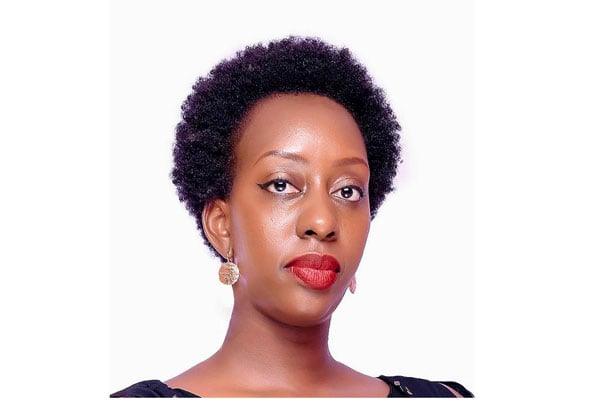Law Reform body tells MPs to reject new surrogacy law

Tororo District Woman MP Sarah Opendi, who initiated the proposed law that was tabled in Parliament in March, speaks in the House. PHOTO/DAVID LUBOWA
What you need to know:
- The law applies to individuals who due to some reasons, including infertility, seek to obtain a child carried in another person’s womb.
Implications: “It is extremely important that Ugandans are consulted widely on this very sensitive matter. It has far-reaching implications for the parties and the children born out of it and I think it is good to be exhaustive,’’ Ms Jeroline Akubu, the assistant commissioner of Uganda Law Reform Commission
Provision under contention: “This Act applies to a man and woman who jointly seek to use human-assisted reproductive technology to obtain a child; and a man and woman, where either the man or woman or both the man and woman suffer primary or secondary infertility or health-related challenges which affect the man or woman’s ability to reproduce.” challenges which affect the man or woman’s ability to reproduce.”
The Uganda Law Reform Commission has asked Parliament to revisit a section of the Human-Assisted Reproductive Technology Bill, 2023, which it says will mainly benefit couples and lock out single parents.
The commission’s chairperson, Ms Pamela Tibihikirra-Kalyegira, and the assistant commissioner, Ms Jeroline Akubu, presented their reservations before the Parliament’s Committee on Health that is currently processing the Bill.
The provision under contention states: “This Act applies to a man and woman who jointly seek to use human-assisted reproductive technology to obtain a child; and a man and woman, where either the man or woman or both the man and woman suffer primary or secondary infertility or health-related challenges which affect the man or woman’s ability to reproduce.”
But Ms Akubu said: “In furthering the Bill’s objective to address the challenges caused by infertility and offer solutions to tell who may suffer from infertility, it is important that the application is not limited. In limiting the application of the Bill, it excludes single adults (widowed or otherwise) in need of ART [Assisted Reproductive Technology] services.”
“Our issue with that clause is that, if you read it the way it appears now, it seems today the application must be a joint application. So, if that isn’t what we want, then the application should be read differently so that it opens it up to adults who want to get children,” she added.
Ms Sarah Opendi, the Tororo District Woman MP, initiated the proposed law that was tabled in March. It seeks, among others, to regulate how surrogate-related services are sought, offered and handled in the country.
The legislation, once passed, will apply to individuals who due to some reasons, including infertility, seek to obtain a child carried in another person’s womb.
The commission, therefore, wants the MPs who are currently receiving opinions of the public on the provisions of the Bill, to consult widely before tabling in Parliament for final deliberations.
“It is extremely important that Ugandans are consulted widely on this very sensitive matter. It has far-reaching implications for the parties and the children born out of it and I think it is good to be exhaustive,” Ms Akubu advised.
She urged the government to support the privately sponsored proposed legislation so that a well-researched law could be formulated to regulate ART services in Uganda.
“The Commission recommends that the law should restrict commercial donation of gametes. The Bill should state the number of times a person may donate gametes as well as the number of times a person’s gametes may be used for ART,” Ms Akubu added Uganda Law Reform Commission.
But Ms Tibihikirra-Kalyegira declined to furnish the committee with specific limits or parameters under which the ART services can be accessed in Uganda.
“We would not like to make any comment on a proposed fee because it is not our place to do that,” she said.
The Padyere County MP, Mr Isaac Ismail Otimgiw, who yesterday chaired the committee, said the MPs would continue receiving opinions from various stakeholders on the matter.
Last month, Dr Richard Mugahi, the assistant commissioner in the Department of Reproductive and Child Health at the Ministry of Health, said the legislation would be key in regulating ART services in the country.




